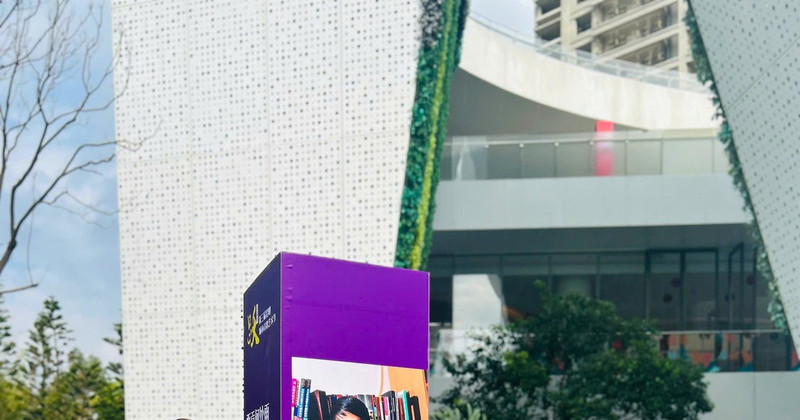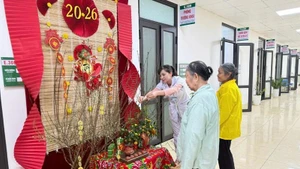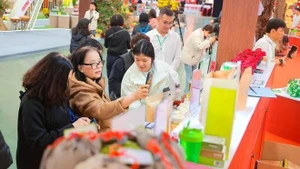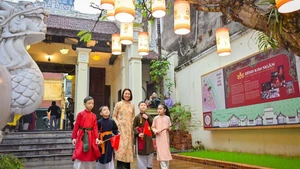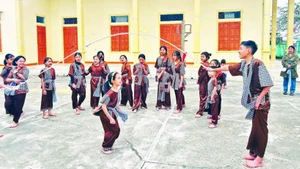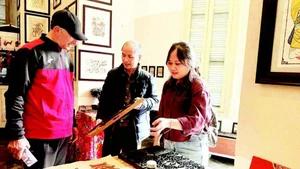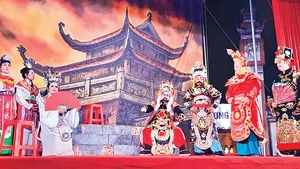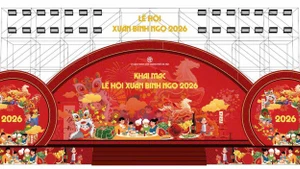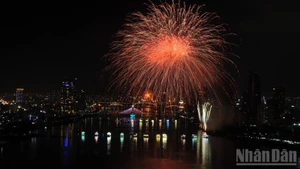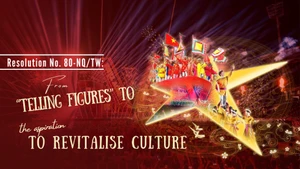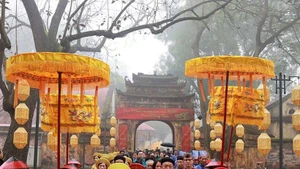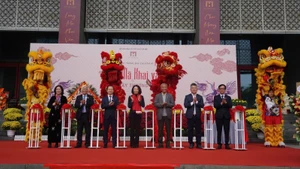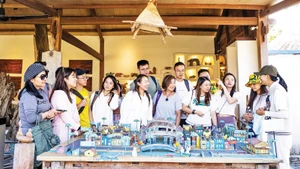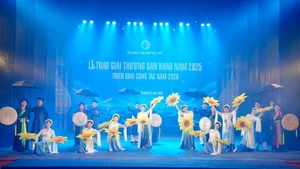Translator Nguyen Le Chi, the founder and current CEO of Chibooks Company, granted an interview with Nhan Dan Newspaper.
A journey full of challenges
Q: Let me begin with the Vietnamese Cultural Book Series, which you and Chibooks are very passionate about introducing to domestic and international readers. Why did you choose to promote this series of books?
A: Vietnamese culture has a long historical tradition and rich content, which is truly worth introducing widely to international friends. As children of the Vietnamese people, we are proud to inherit the cultural treasures passed down through generations, and we feel even prouder if the international community recognises, embraces, and cherishes these cultural values.
On the other hand, culture is the best tool to build bridges of friendship, helping different peoples and nations understand each other more deeply and bringing them closer together. It allows us to learn how to harmonise differences and make the most of common points to further strengthen our unity. Through this, we can enhance cooperation and establish long-term, quality partnerships. Culture can be seen as the "universal key" to open the door that separates nations and peoples.
However, we have noticed that readers in many countries, including China, still do not fully understand Vietnam, its people, and its culture. Their initial impressions of Vietnamese books, in general, and our country and people in particular, are still distant and sometimes based on outdated views from several decades ago. We hope to address this lack of information about Vietnam through the Vietnamese Culture Bookshelf.
Q: Certainly, the Chinese publishing industry must have been initially cautious about this project?
A: Yes, that's right. Initially, our Chinese partners could not avoid feeling unfamiliar and had difficulty appreciating the beauty and value of each work. If someone only read the book summary or the table of contents, even if translated into Chinese, they surely would not be convinced. It was only when we invested in translating two works, "Vat qua nhung ngan may" (Across the clouds) by Do Quang Tuan Hoang, about the culture of the Northwest region, and "Nguoi Ha Noi - Chuyen an chuyen uong mot thoi" (Hanoians – Stories of eating and drinking in the past) by Vu The Long, about Hanoi's food culture, that our partners were able to fully experience the essence of Vietnamese culture and decide to invest in the copyright for publication.
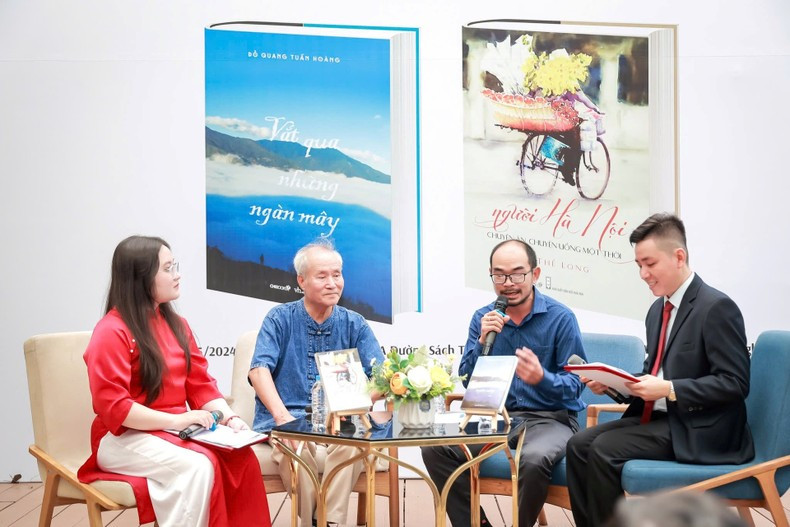 |
| At the talks with authors Vu The Long and Do Quang Tuan Hoang at the copyright signing ceremony at the Ho Chi Minh City Book Street. (Photo courtesy of the authors) |
Q: Besides the time and conditions required to persuade partners, what other significant challenges are there in bringing the Vietnamese Culture Book Collection to Chinese readers?
A: Having spent 16 years introducing Vietnamese books abroad, we have accumulated quite a bit of experience in translation and book promotion. However, translation still requires a lot of time and effort. The number of Chinese experts proficient in Vietnamese and understanding Vietnamese culture is limited, and they are all extremely busy with their professional work. Therefore, inviting them to translate books for Chibooks is not simple. It can be said that they agree to translate only because of their deep admiration for Vietnamese culture, and it takes two to three years to complete this difficult step in creating a Chinese-language publication on Vietnamese culture. There are also challenges related to the financial investment required for translation.
We are continuing to search for "midwives" in publishing in China and other countries so that our "intellectual children" can have the opportunity to be introduced more widely.
Q: Why did you not choose translators from Vietnam?
A: Translating from Vietnamese into other languages is always more challenging than translating from other languages into Vietnamese. Therefore, we did not choose Vietnamese translators to translate from Vietnamese to Chinese; instead, we tried to find and invite skilled Chinese translators who were fluent in Vietnamese. In addition, it is equally important to find and invite Chinese experts to review the translation to ensure the content reaches the readers in the best possible way.
After successfully selling the rights, the translations of the two works 'Vat qua nhung ngan may' and 'Nguoi Ha Noi - Chuyen an chuyen uong mot thoi' were reviewed by a Chinese PhD who teaches the Vietnamese language at a university in China. Throughout the process, we continued to collaborate with the local publishers in editing, designing, and providing additional illustrations for the books.
Careful preparation to gain more opportunities for success
Q: It is known that during the China-ASEAN Book Culture Week, held from November 16 to 19, Chibooks brought one of the two Vietnamese authors to interact with Chinese readers. What are your expectations for this event?
A: We hope that having the author attend the launch of the Vietnamese Culture Book Collection in Chinese during the China-ASEAN Book Culture Week will help Chinese readers have a deeper interaction with the author. This will enable them to understand the works better, spark curiosity and interest, and further explore Vietnamese culture, thereby fostering a love for Vietnamese culture as well as the country and its people.
Q: Looking at it more broadly, could you share your observations on the methods of promoting Vietnamese culture in the 'billion-strong' country in recent times?
A: Promoting Vietnamese culture has been taking place across many aspects, from publications, popular food products (such as coffee, pho (noodle soup), and steamed rice rolls) and clothing items like the Ao Dai to Vietnamese artists who have collaborated and worked in some reality TV shows in China, as well as the behaviour of Vietnamese people when travelling in the country... Through these efforts, Chinese people are gradually gaining a fuller understanding and growing fond of and supporting Vietnamese culture.
Of course, when our cultural products are introduced to another country, they must be carefully selected, well-prepared, of high quality, and invested in for promotion... only then can they have a chance of success.
Ultimately, promoting a country's culture in another country is no easy task. We can only follow a "slow and steady" approach, bit by bit, day by day, month by month, year by year.
Thank you very much!
